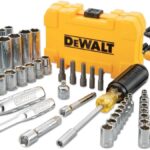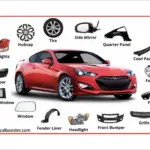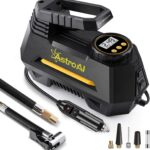For some of you, your childhood might have been paved with interest in cars and the mechanics thereof, whether it be playing pretend with toys or helping dad in the garage on the weekends; somewhere along the line interest in the mechanical workings of vehicles grew stronger. For others, a change in career or perhaps starting a new one is what may have brought to this point in which you are now researching on how you can take that interest and turn it into your new journey towards becoming a mechanic. So to get you started with some of the fundamentals of being a mechanic, we have gathered some tools and tips on how you can jump-start your vehicle of life into becoming a mechanic.

Types of Mechanics:
First, let’s gain some clarity on all the various types of mechanics there are so that you can see which category you might want to explore further. The world of mechanics can stretch out into much more specialised fields and focus areas but below is a list of some general avenues to take within mechanics:
1. Auto Mechanics:
An auto mechanic will focus on the repairing and maintenance of mechanical and electrical systems of a motor vehicle as well as small trucks. This will require an understanding and knowledge of working on engines, brakes, and electrical diagnostics as well as steering and transmission systems all the while being able to perform basic testing and servicing on vehicles too.
2. Diesel Mechanics:
In diesel mechanics, the focus is placed on diesel powered engines which are commonly found in trucks, busses, trains, and even planes. This requires a more specialised understanding as the diesel motors and engines are known to be much more complex than auto-motive mechanics. You can also choose to specialise in smaller diesel engines all the way through to heavy vehicle and large diesel engine powered motors.
3. Motorcycle Mechanic:
Just as the auto-motive mechanics, motorcycle mechanics focus on all the same systems but of course specifically focusing on motorcycles, scooters and off-road or dirt bikes. A motorcycle mechanic will specialise as a technician servicing and repairing engines, transmission systems, brakes and other mechanical components of motorcycles and bikes.
4. Small Engine Mechanics:
Many small engine mechanics will be able to service and work on motorcycle engines but will have a broader knowledge of more auto-engines such as motorboats and power equipment such as lawn mowers, tractors or even sports mobiles such as jet skis and snowmobiles.
Once you have decided which mechanical career you want to explore, what would be your next step? As with any specialised field, no matter how hands on or practical, there will always be a certification required of some sort to be qualified in the working arena. Here are some of the tips to consider when interested in becoming a mechanic or kick starting your career in mechanics:
Also Read:
- 6 Types of Screwdrivers – Everyone Must Know
- Top 5 Best Vacuum Cleaner for Car to Buy
- Difference Between 2 Stroke and 4 Stroke Engines
Educational Requirements:
Although there are many people who have managed to pursue a career in mechanics without a high school diploma, it certainly is important to have matriculated high school if you want to take your career seriously. A high school diploma is usually required in order to further your tertiary studies into a specialised field, no matter whether it is a certification or a diploma. Find out what courses you can do or certification programmes you can study which will provide a solid foundation within the focused knowledge areas of mechanics, and then see if you are able to meet the criteria or educational requirements to become a mechanic.
Experience Makes For Perfect Practice:
Try to gain some hands-on and practical experience by applying for any junior or entry-level positions at car dealerships and mechanical repair shops which will help you to get more exposed to the various aspects of mechanical work. The best way to learn is to ask as many questions from the mentors you might have, get an understanding of what tools they use, and why. Expand your knowledge on all the components of a vehicle or the auto-motive engines you might be working on. With different jump off points to start learning, you can even try working part-time for car towing or pick-up companies. In doing so, you can get to know motor vehicles from the moment they break down and require towing assistance. You may require a truck to offer these services and once you are certified, you can look into short to long term leases with various types of trucks until you are ready to move onto the next phase of your career.
Get Into the Nuts and Bolts:
Once you have acquired some fundamental and basic knowledge of mechanical work, you can start getting into the details. Try and find an experienced based position which will allow you to learn how to take apart an engine and the components of the vehicles and of course how to put them back together. In working with auto-motives, you will need to be confident in your abilities when working with various elements of a vehicle and understanding how everything fits together and which parts rely on one another to function. Get to know the names of parts, the different types of parts that may fit into the mechanics of a vehicle and practice as much as you can through practical experience, research and mentorship. It may take some time but once you get the hang of it all, you will quickly find yourself climbing up the ladder of mechanical knowledge and experience.
A License to Serve as a Mechanic:
Lastly, once you feel that you have acquired the skills and experience to give you confidence in this career step, the next thing you want to do is to find out what license you will require to be certified and qualified in working in the mechanical field of your choice. It may differ in every state or country so ensure you get the right information on how to get licensed. Acquiring a license to operate, service and repair auto-motives will only assist in broadening your job prospects with various companies. A car or automotive is always an important asset and people will feel more confident and comfortable knowing that their mechanic is not only experienced and trusted but has the license to motivate their abilities on working on a vehicle or motorbike.
With so many online tools at our disposal today, you can explore the world of mechanics through instruction and informative videos as well as doing as much research as you possibly can. If you are serious about a career in auto-motives or as a mechanic, you might even want to look into degrees and more specialised tertiary qualifications. It all depends on what type of mechanic you are interested in being as well as where you see your career going.








